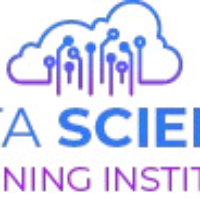Common Mistakes Beginners Make In Data Science
Common Mistakes Beginners Make in Data Science
The demand for data scientists has skyrocketed over the past decade, as organizations of all sizes increasingly depend on data to make smarter and more efficient decisions. From tech startups analyzing user behavior to global corporations forecasting market trends, data science is at the core of modern innovation. With this growing importance, more students and professionals are eager to enter the field, but many quickly discover that data science is far more complex than they initially expected.
For beginners, the journey into data science can be both exciting and challenging. It’s easy to get lost in the vast ocean of tools, programming languages, and algorithms without a clear understanding of where to begin. While passion and curiosity are essential, many newcomers make avoidable mistakes that hinder their progress, such as focusing too much on coding, skipping mathematical foundations, or neglecting real-world practice. Recognizing and addressing these mistakes early can make the learning process smoother and more effective.
At Data Science Training Institute, we’ve seen many learners struggle simply because they lacked guidance on how to approach data science the right way. Understanding what not to do is just as important as knowing what to learn. In this blog, we’ll discuss the most common mistakes beginners make in data science, explore why they happen, and offer practical advice to overcome them.
Are you looking for a Data Science Course in Delhi? Contact “Data Science Training Institute”

Ignoring the Fundamentals of Mathematics and Statistics
One of the most common mistakes beginners make is skipping over the foundational concepts of mathematics and statistics. Many learners rush into complex machine learning algorithms without understanding the underlying principles that drive them. Statistics, probability, and linear algebra are the backbone of data science, helping you understand model behavior, analyze distributions, and validate predictions. Without these fundamentals, it’s easy to misuse algorithms or misinterpret results. To avoid this, students should spend time learning topics like descriptive statistics, hypothesis testing, and probability distributions before diving into machine learning.
Focusing Too Much on Tools Instead of Concepts
Another mistake is getting overly obsessed with tools such as Python, R, or TensorFlow while neglecting the core concepts of data analysis and modeling. Tools and libraries are essential, but they are only as effective as your understanding of how and why they work. Beginners often memorize functions or follow tutorials blindly, which limits their problem-solving ability when faced with real-world data challenges. Instead, focus on understanding what each algorithm or function does and when to use it. Platforms like pythontraining.net provide clear explanations of both coding syntax and theoretical concepts, helping students strike the right balance.
Neglecting Data Cleaning and Preprocessing
Many beginners underestimate the importance of data cleaning, one of the most time-consuming yet crucial steps in any data science project. Real-world data is rarely perfect; it often contains missing values, inconsistencies, and errors that can mislead models if not handled properly. Beginners may rush to build models without checking data quality, resulting in inaccurate or biased outcomes. Learning how to handle missing values, normalize datasets, and remove duplicates is essential for producing reliable results. Students should practice data preprocessing using Python libraries like Pandas and NumPy to build a strong foundation.
Jumping into Machine Learning Too Early
It’s common for new learners to get excited about machine learning and artificial intelligence right away. However, without mastering basic data analysis, visualization, and statistical inference, jumping into machine learning can lead to confusion. Machine learning requires a clear understanding of how data behaves and how features impact model performance. Beginners should first gain experience with Exploratory Data Analysis (EDA), learn to visualize data using tools like Matplotlib or Seaborn, and understand business problems before applying complex algorithms. Once the fundamentals are clear, learning ML models like regression, clustering, and classification becomes much easier and more meaningful.
Overfitting and Underfitting Models
When building models, beginners often face issues with overfitting (when a model learns the training data too well) or underfitting (when it fails to learn enough from the data). These issues arise from improper model selection, lack of cross-validation, or using irrelevant features. Overfitting can make models perform well on training data but fail on real-world data, while underfitting results in poor predictions overall. To avoid these mistakes, students should learn techniques like cross-validation, regularization, and feature selection. Understanding evaluation metrics such as accuracy, precision, recall, and F1-score can also help ensure model robustness.
Are you looking for a Data Science Institute in Delhi? Contact “Data Science Training Institute”
Ignoring Domain Knowledge
Data science is not just about coding and algorithms, it’s about solving real-world problems. Beginners sometimes forget the importance of domain knowledge, which helps interpret results and make meaningful conclusions. For example, analyzing financial data requires an understanding of economics and market trends, while healthcare data demands familiarity with medical terms and patient records. Without domain expertise, even the most sophisticated model may provide irrelevant or misleading insights. Beginners should collaborate with subject matter experts or research the domain they are working in to make their data science work impactful.
Lack of Version Control and Documentation
Many beginners neglect good practices like version control and documentation. They write code without organizing or commenting on it, which makes collaboration and revisiting old projects difficult. Using version control tools such as Git and GitHub helps track changes, share work, and maintain project consistency. Additionally, writing clean and well-documented code ensures that others (and even your future self) can easily understand your workflow. As data science projects grow in complexity, maintaining good coding habits becomes vital for long-term success.
Avoiding Real-World Projects
A common trap for beginners is spending too much time learning theory and watching tutorials without actually applying what they’ve learned. Real-world hands-on projects are where true learning happens. Working on datasets from domains like finance, retail, or healthcare helps solidify theoretical knowledge and improve problem-solving skills. Beginners should participate in Kaggle competitions, contribute to open-source projects, or build small portfolio projects. Platforms like pythontraining.net also offer guided projects and exercises to help learners practice data science in real-world scenarios.
Ignoring Data Ethics and Privacy
In today’s digital world, data ethics and privacy are becoming increasingly important. Beginners often overlook the ethical implications of handling sensitive data. Understanding topics like data privacy laws (e.g., GDPR), informed consent, and bias prevention is essential for becoming a responsible data scientist. Ethical data practices ensure fairness, transparency, and trust in your models. At Data Science Training Institute, we emphasize that technical skills must always go hand in hand with ethical responsibility.
Giving Up Too Early
Finally, one of the biggest mistakes beginners make is losing patience too soon. Data science can be challenging, with steep learning curves in programming, statistics, and mathematics. It’s natural to feel overwhelmed at times, but persistence is key. Continuous practice, regular reading, and joining online communities can help learners stay motivated. Remember that mastering data science takes time, but every small step contributes to long-term success.
For More Information, Visit Our Website: https://www.datasciencetraining.co.in/
Final Thoughts
Data science is an ever-evolving field that rewards curiosity, critical thinking, and continuous learning. For beginners, it’s important to understand that success in data science doesn’t come overnight it requires patience, practice, and a willingness to learn from mistakes. By avoiding these common pitfalls, students can strengthen their technical foundation and develop a problem-solving mindset that’s essential for real-world applications.
At Data Science Training Institute, we encourage learners to combine theory with practical experience to gain a deeper understanding of the field. The key is to stay adaptable, keep experimenting, and continuously upgrade your skills as new technologies emerge. With dedication and the right guidance, anyone can transition from a beginner to a confident, skilled data scientist ready to make a real impact.
Follow these links as well :
https://datasciencetraininginstitute.widblog.com/92886861/roadmap-to-master-data-science
http://bedfordfalls.live/read-blog/183410
